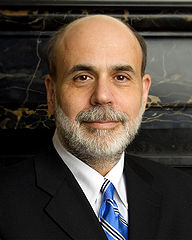By Edward Zelinsky
Public pension plans should not invest in private equity deals. These deals lack both transparency and the discipline of market forces. Private equity investments allow elected officials to assume unrealistically high rates of return for public pension plans and to make correspondingly low contributions to such plans. This is a recipe for inadequately funded pensions, an outcome good for neither public employees nor taxpayers.
Testifying recently before the House Committee on Financial Services, Federal Reserve Chairman Ben Bernanke confirmed that short-term interest rates will effectively be kept at zero for the near future. This comes as no surprise to the millions of Americans who today receive nonexistent returns on their passbook savings and money market accounts.In this low return environment, public defined benefit pension plans generally assume that they can earn annual investment returns in the vicinity of 8%. Such aggressive return assumptions allow governors and legislators to authorize smaller tax-financed contributions to such public pensions on the theory that anticipated investment gains will fund the retirement benefits promised to public employees.
A primary defense of this practice is that plans’ assumptions should reflect long-term experience. From this vantage, the current low interest rate environment is an historic anomaly. For the long run, the argument goes, public pension plans will earn higher returns.
Whatever the theoretical merits of this approach, it is troubling in practice, an invitation to push into the future the problem of inadequately funded public pension plans. That problem exists today and needs to be confronted today, as the Baby Boomer cohort retires in unprecedented numbers and places corresponding demands on public and private retirement plans.
A second defense of high assumed rates of return is that public pension plans can earn aggressive gains through so-called “alternative” investments such as private equity partnerships. Publicity about Mitt Romney’s IRA has focused attention on the often lucrative results obtained by at least some private equity investors. Many public pension plans have effectively become addicted to private equity deals and their promises of outsized investment returns.
It is, however, doubtful that these promised returns are generally obtained by the private equity industry or that such returns are obtained on the scale sought by public pension plans. Private equity is, by definition, private. Much of the good news we hear about this industry comes from the industry itself. Since there are no active markets for these investments, investors in private equity deals are ultimately dependent upon valuations by the sponsors of these deals.
In a recent paper, Professor K.J. Martijn Cremers of the Yale School of Management concluded that private equity investors have in the last 10 years done no better than investors in the stock market. Others, such as Professor Steven Kaplan of th




